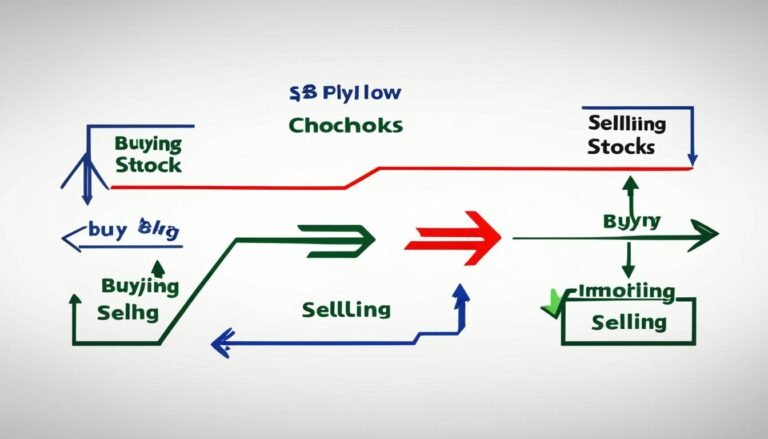Debt Management Strategies for Financial Freedom
Managing debt can be challenging, but with the right strategies, it is possible to achieve financial stability and alleviate the burden of debt. Understanding the different types of debt and developing a solid foundation for effective debt management are essential steps. This involves assessing each type of debt, including outstanding balances, interest rates, and other relevant details, to prioritize repayments. Budgeting is also crucial in allocating funds towards debt repayment and tracking progress. Utilizing debt calculators and tracking tools can provide insights into current financial situations and help make informed decisions. Regularly reviewing and adjusting the budget is important to adapt to changing circumstances. By taking these fundamental steps, you can set yourself up for success in managing debt and working towards financial freedom.
**Key Takeaways:**
- Assess your debts, including outstanding balances and interest rates, to prioritize repayments.
- Create a realistic budget that allocates funds towards debt repayment.
- Utilize debt calculators and tracking tools to gain insights into your financial situation.
- Regularly review and adjust your budget to adapt to changing circumstances.
- By effectively managing your debt, you can work towards achieving financial freedom.
Techniques for Reducing and Eliminating Debt
Reducing and eliminating debt requires careful planning and commitment. By implementing various debt strategies, you can actively work towards achieving financial freedom. Here are some effective techniques to help you on your debt elimination journey:
Snowball Method
The snowball method is a debt reduction strategy that focuses on paying off the smallest debts first while making minimum payments on larger debts. As you eliminate each small debt, you gain a sense of accomplishment and motivation to tackle the larger ones. This method allows you to build momentum and stay motivated, leading to faster progress towards debt freedom.
Avalanche Method
The avalanche method, also known as the debt stacking method, prioritizes paying off debts with the highest interest rates first. By tackling the debts with higher interest rates, you can potentially save money in the long run. This method effectively minimizes the total interest paid over time and accelerates your journey towards living debt-free.
Debt Consolidation
Debt consolidation is a strategy that involves combining multiple debts into a single loan or credit card with a lower interest rate. This allows for easier management of payments and potentially reduces the overall debt burden. Consolidating your debts simplifies your financial situation and may help you save money on interest charges.
Refinancing
Refinancing refers to replacing an existing debt with a new loan that has more favorable terms, such as a lower interest rate or longer repayment period. By refinancing your debt, you can potentially reduce your monthly payments and make them more manageable. This strategy is particularly useful for high-interest debts, such as credit card balances.
Negotiating with Creditors
When facing financial challenges, it’s worth exploring the option of negotiating with your creditors. Contacting your creditors to discuss possible alternatives, such as reduced interest rates or extended repayment terms, can help ease the financial strain. It’s important to approach these negotiations with honesty, openness, and a willingness to find mutually beneficial solutions.
Implementing these debt reduction techniques requires discipline and commitment. It’s crucial to create a realistic budget that aligns with your financial goals and ensures consistent debt repayment. Avoiding new debt accumulation through responsible financial habits is also essential. With perseverance and the right strategies, you can successfully reduce and eliminate your debt, paving the way to a brighter financial future.
Budgeting for Debt Repayment
Creating a budget is a crucial step in effectively managing debt and achieving long-term financial stability. By carefully analyzing your income, expenses, and debt obligations, you can determine the amount of money that can be allocated towards debt repayment each month. It is essential to be realistic and honest when assessing your income and expenses to ensure accuracy in your budget.
To assist you in tracking your progress and gaining insights into your current financial situation, you can utilize budgeting tools and calculators. These tools provide visual representations of your budget and help you stay organized and on track with your debt repayment goals.
| Budget Allocation Tips | Benefits |
|---|---|
| Prioritize Debt: | By allocating a significant portion of your budget towards debt repayment, you can accelerate your progress and reduce your debt burden. |
| Emergency Fund: | Allocate a portion of your budget towards building an emergency fund. This fund acts as a financial safety net and helps you avoid unnecessary debt in case of unexpected expenses. |
| Long-Term Savings: | While focusing on debt repayment is crucial, it is also important to set aside a portion of your budget for long-term savings. This ensures that you are not only addressing your current financial obligations but also preparing for future financial goals. |
It is important to strike a balance between debt repayment and saving for long-term goals. By effectively budgeting, you can allocate funds towards both debt repayment and saving, ensuring financial resilience and progress towards achieving your financial freedom.
Case Study: Sarah’s Budget Allocation
Let’s take a look at how Sarah, a fictional individual, allocated her budget towards debt repayment:
- Monthly Income: $4,000
- Monthly Expenses: $2,500
After analyzing her income and expenses, Sarah determined that she could allocate $800 per month towards debt repayment. She allocated an additional $300 towards building an emergency fund, leaving $1,400 for long-term savings and other financial goals.
This budget allocation allowed Sarah to make substantial progress in repaying her debts while also building an emergency fund and saving for her future. With each passing month, she witnessed a reduction in her debt balances and an improvement in her overall financial well-being.
“Creating a budget that prioritizes debt repayment is like creating a roadmap to financial freedom. It empowers you by giving you control over your finances and a clear path towards a debt-free future.” – Jane Smith, Financial Expert
Understanding the Impact of Debt on Credit
Debt and credit are closely intertwined. Proper management of debt is essential to maintaining a healthy credit score, which is crucial for financial stability. Different types of debt have varying impacts on your credit score. Let’s take a deeper look at how debt can affect your credit.
Revolving Debt and Credit Scores
Revolving debt, such as credit cards, can have a significant impact on your credit score. This type of debt allows continuous borrowing and repayment. Lenders closely monitor how you handle revolving debt as it reflects your ability to manage ongoing financial obligations. High levels of revolving debt, especially when close to or exceeding credit limits, can negatively impact your credit score. It’s important to keep your credit card balances as low as possible to maintain a healthy credit utilization ratio.
Installment Debt and Credit Scores
Installment debt, such as mortgages or car loans, also affects your credit score. However, the impact might be less significant compared to revolving debt. When you make consistent, on-time payments towards installment debt, it demonstrates responsible financial behavior and can potentially improve your credit score. Conversely, missed payments or defaulting on installment debt can have a detrimental effect on your credit score. It is crucial to stay current with your payments to maintain a positive credit history.
Credit Utilization and Credit Scores
Your credit utilization ratio plays a vital role in determining your credit score. It is the percentage of your total available credit that you are currently using. Lenders prefer to see a low credit utilization ratio, ideally below 30%. Keeping your revolving debt balances low helps maintain a healthy credit utilization ratio and can positively impact your credit score.
Credit History and Credit Scores
Your credit history, which includes your payment behavior and length of credit, is a critical factor in determining your credit score. A longer credit history with a track record of responsible borrowing and timely payments can boost your credit score. Conversely, a short credit history or negative payment history, such as late payments or defaults, can have a negative impact on your credit score. It is important to establish and maintain a positive credit history by making payments on time and managing debt responsibly.
| Type of Debt | Impact on Credit Score |
|---|---|
| Revolving Debt (Credit Cards) | High impact; balances and credit utilization ratio are closely monitored |
| Installment Debt (Loans) | Moderate impact; consistent, on-time payments can improve credit score |
| Credit Utilization | High impact; keeping balances low helps maintain a healthy credit utilization ratio |
| Credit History | High impact; a longer positive credit history can boost credit score |
Understanding the impact of debt on your credit score is crucial for making informed financial decisions. By managing your debt responsibly and maintaining a positive credit history, you can improve your credit score and open doors to better financial opportunities.
The Importance of Good Debt Management
Good debt management is crucial for maintaining financial health and stability. When you effectively manage your debts, you can avoid pitfalls such as late fees and high-interest costs, and protect your credit score and credit history. This paves the way for future opportunities, including better interest rates on loans and credit cards, ultimately helping you achieve your financial goals.
By tracking and controlling your debts, you gain a clearer understanding of your financial situation. This allows you to make informed borrowing and repayment decisions that align with your long-term financial plans. Timely payments not only prevent late fees but also demonstrate your reliability to creditors, improving your creditworthiness.
Furthermore, good debt management enables you to take advantage of lower interest rates. Lenders are more likely to offer favorable rates to individuals with a good credit history and responsible debt management. With lower interest rates, you can reduce the overall cost of borrowing, saving money in the process.
Managing your debts effectively also protects your credit score. Late payments and excessive borrowing can negatively impact your credit score, making it harder to secure loans and credit in the future. By staying on top of your debts and making timely payments, you can build a positive credit history, increasing your chances of future financial opportunities.
Remember: Good debt management is not just about staying on top of your current financial obligations. It is also about setting yourself up for future success by maintaining a healthy credit score and financial profile.
Benefits of Good Debt Management
- Financial Health: By effectively managing your debts, you ensure a strong foundation for your overall financial health.
- Credit History: Good debt management helps maintain a positive credit history, which is essential for accessing credit in the future.
- Interest Rates: Responsible debt management can lead to better interest rates on loans and credit cards, saving you money over time.
- Late Fees: Timely payments prevent late fees, reducing the overall cost of your debts.
- Credit Score: By protecting your credit score, you improve your chances of securing favorable financial opportunities.
- Future Opportunities: Good debt management opens doors to future opportunities, such as obtaining loans for major purchases or starting a business.
Quote
“By managing your debts effectively, you not only achieve financial stability but also set yourself up for a brighter financial future.” – [Real Name], Financial Advisor
| Financial Health | Credit History | Interest Rates | Late Fees | Credit Score | Future Opportunities |
|---|---|---|---|---|---|
| Ensures a solid foundation for overall financial well-being | Maintains a positive credit history for better access to credit | Secures lower interest rates, saving money in the long run | Prevents extra costs associated with late payments | Protects and improves your credit score, enhancing your financial reputation | Opens doors to future financial opportunities and endeavors |
Pay Bills When They Arrive
One of the most effective strategies for managing debt is to pay bills as soon as they arrive. By prioritizing timely payments, you can avoid incurring late fees and interest charges, which can further burden your financial situation.
Paying bills promptly not only ensures that your financial obligations are met on time but also helps maintain a good credit score. Late payments can have a negative impact on your credit history, potentially affecting your ability to secure favorable interest rates or future credit opportunities.
Committing to timely bill payment requires discipline and organization. Set up a system to track the due dates of your bills, whether it’s using a physical calendar, an online reminder, or a budgeting app. By staying on top of your payments, you can stay in control of your debt and avoid unnecessary fees and charges.
Remember, every bill that you pay promptly brings you one step closer to financial freedom and a stronger financial future.
Creating an Overview of Everything You Owe
Before effectively managing your debt, it is crucial to have a clear understanding of your financial obligations. By creating a comprehensive overview of everything you owe, including outstanding balances, interest rates, minimum payments, and due dates, you can gain valuable insights into your debt situation and prioritize your repayment efforts.
Having a debt overview allows you to identify the most pressing debts that require immediate attention. By considering factors such as interest rates and outstanding balances, you can strategically allocate your resources and focus on debts that are costing you the most in interest charges.
Additionally, knowing your minimum payment requirements is essential for budgeting purposes. By understanding the minimum payments for each debt, you can allocate the necessary funds to ensure you meet your obligations and avoid late payment fees.
Creating an overview of your debts provides a snapshot of your financial situation and empowers you to make informed decisions regarding debt prioritization.
| Debt Type | Outstanding Balance | Interest Rate | Minimum Payment | Due Date |
|---|---|---|---|---|
| Credit Card A | $5,000 | 18% | $100 | 15th of every month |
| Student Loan | $20,000 | 5% | $200 | Last day of the month |
| Car Loan | $15,000 | 7% | $300 | 10th of every month |
Table: Example Debt Overview
Building Emergency Funds
One of the key steps in effective debt management is building an emergency fund. Life is full of unexpected expenses and financial shocks, and having a dedicated fund can help you navigate these challenges without resorting to borrowing or relying on credit cards. By saving three to six months’ worth of living expenses, you can create a financial safety net that provides stability and peace of mind in case of unforeseen circumstances.
An emergency fund acts as a cushion, allowing you to cover sudden medical expenses, car repairs, or other urgent needs without jeopardizing your financial well-being. By avoiding additional debts or high-interest loans, you can maintain control over your finances and avoid the stress of accumulating more debt.
Benefits of an Emergency Fund:
- Protection against unexpected financial shocks
- Reduced reliance on credit cards and loans
- Peace of mind and financial stability
- Ability to handle emergencies without disrupting your debt management plan
When building your emergency fund, it’s important to consistently set aside money from your income. Treat it as a recurring expense in your budget, allocating a portion of your earnings specifically for this purpose. Automating the savings process can make it easier and more convenient, ensuring regular contributions without the temptation to spend the money elsewhere.
Consider opening a dedicated savings account for your emergency fund. This can help you separate the funds from your daily spending and make it less tempting to dip into it for non-emergencies. Look for an account that offers competitive interest rates and easy access to the funds when needed.
Building an emergency fund requires discipline and patience, but the peace of mind it provides is invaluable. By prioritizing savings, you create a strong foundation for managing debt and gaining financial freedom.
| Emergency Fund Tips | Importance |
|---|---|
| Create a realistic savings goal | Setting a target amount ensures you have a specific goal to work towards. |
| Automate your savings | Schedule automatic transfers from your checking account to your emergency savings to ensure consistent contributions. |
| Separate your emergency fund from daily spending | Storing your funds in a separate account can prevent accidental spending and help you stay focused on your goal. |
| Use windfalls to boost your fund | Unexpected bonuses, tax refunds, or other windfalls can be added to your emergency fund to accelerate its growth. |
| Replenish your fund after using it | If you dip into your emergency fund, make it a priority to replenish it as soon as possible to maintain your financial safety net. |
By building an emergency fund, you protect yourself from financial setbacks and avoid the need to rely on additional debt. It is a crucial component of effective debt management and plays a significant role in maintaining your overall financial health.
Conclusion
Effective debt management is a journey that requires commitment and discipline. By implementing strategies such as prioritizing debt, creating a budget, building an emergency fund, and seeking professional guidance when needed, you can take control of your debt and work towards financial freedom. Managing debt is not just about eliminating financial obligations; it is about liberating yourself from the burden of debt and opening doors to future opportunities.
By prioritizing your debts, you can develop a plan to tackle them systematically. Creating a budget helps you allocate funds towards debt repayment and track your progress along the way. Building an emergency fund acts as a safety net, ensuring that unexpected expenses don’t derail your financial goals. Remember, with every payment made and every debt reduced, you are one step closer to debt freedom.
Don’t hesitate to seek professional guidance when needed. Debt management professionals can provide valuable advice tailored to your unique circumstances, helping you make informed decisions and stay on the path to financial liberation. With dedication and determination, you can overcome your debts and achieve the peace of mind that comes with financial freedom. Take control of your future today!







